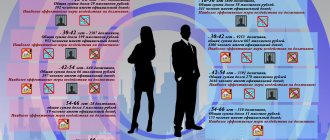Legal norms
The bill under consideration provides for several key points that are important for mothers who are raising a child on their own after a divorce.
In particular, the project has the following important aspects:
- The right to receive financial assistance belongs to those dependents whose fathers do not want to comply with a court decision that has entered into legal force to establish alimony from a permanent income, provided that the alimony payer is wanted.
- Payment of funds will be made from the budget of the constituent entity of the Russian Federation.
- The amount of the state benefit is equal to the amount that was reflected by the judge in the decision to collect alimony payments for the maintenance of a minor child.
The main need for the adoption of such a bill is the ability to provide support to mothers raising children alone to improve their financial situation.
It is worth remembering that while this bill is under consideration, it makes no sense to demand financial support from the state, since the federal authorities are not obliged to transfer funds in place of unscrupulous fathers.
the federal law
Mothers raising a child alone should pay attention to Federal Law No. 81, which contains rules on benefits for citizens who have children. In particular, Article 16 of this normative act establishes that a woman who is raising a minor child on her own can count on receiving an increased monthly child benefit if this possibility is established at the level of the legislation of the subject.
Consequently, if regional laws establish such a possibility, the mother can submit documents confirming the father’s evasion of his obligations to pay alimony to local authorities. Based on the results of reviewing the submitted documentation, specialists make a positive decision, and the amount of the monthly child benefit increases.
What does the state do if a parent does not pay child support?
Guardians with whom minor children live do not have the right to receive alimony from the state if the debtor fails to pay it. However, the authorities have developed a number of effective measures by which the Federal Bailiff Service (FSSP) influences defaulters and forces them to repay the debt .
However, if certain conditions are met, citizens can count on material compensation from the state in the event of non-receipt of alimony. In particular, the right to receive increased child benefits , taking into account the criteria of his need. This method is suitable for low-income citizens with children under age.
Conditions for receiving benefits
The amount of preferential payments, the timing and frequency of their appointment are established and regulated by each subject of the country individually (Article 16 of Federal Law No. 81-FZ of May 19, 1995). However, there are general principles according to which benefits can be increased:
- The recipient of alimony must be recognized as low-income, that is, the average monthly income for each family member must not exceed the subsistence level.
- The claimant has a writ of execution or a court decision in his hands.
- The alimony holder is hiding and (or) not fulfilling his financial obligations.
- Accumulation of unpaid debt (on average, about 6 months).
Monthly payments may also be slightly increased in cases where the child’s parent :
- is undergoing military service;
- does not pay child support for the following reasons:
- evades payment of alimony;
- undergoes compulsory treatment;
- is wanted.
serving a prison sentence;
The duration of payments is established by the authorities of the constituent entities of the Russian Federation . For example, in the Bryansk region, funds are paid until the age of 16, and if the child continues to study in a general education organization, then until the age of 18.
The amount of benefits also varies and can range from several hundred to several thousand rubles . To clarify official information about the amount and duration of payments, you must contact the social protection authorities . In some regions there may be no surcharge.
How to get benefits for non-payment of alimony
To receive “children’s” benefits, the legal representative of a child whose parent does not pay child support must contact the social security authorities at the address of residence and provide the organization’s employees with a package of the following documents:
- Application for child benefit.
- Child's birth certificate.
- A certificate confirming that the child lives together with the parent who wishes to receive the benefit.
- Certificate of salary for each family member - to confirm low income and need.
Depending on the circumstances, the following evidence is required that payment of alimony is not carried out or is impossible :
- information from the bailiff service that the location of the debtor was not established at the time of applying for increased benefits;
- a certificate of the location of the debtor: from the place of deprivation of liberty, from a medical organization, as well as a document confirming that the alimony holder does not have earnings sufficient to fulfill the court decision;
- information from the military commissariat about the conscription of the child's father for military service.
The list of required documents can be expanded: for example, sometimes a divorce certificate is required. Up-to-date information should be obtained from the social security authorities in the locality of residence.
In this case, the recipient of assistance will need to periodically confirm their low-income status so as not to lose benefits. If the relative starts paying child support again, payments from the state will also stop.
Grounds and conditions for receiving
If the bill is adopted, the grounds and conditions on which a person can count on receiving benefits due to the failure of the second parent to fulfill the obligation to raise and financially support his minor child, subject to several conditions.
- If a court decision has entered into force, which imposes on one of the parents the obligation to pay child support.
- The defendant refuses to pay alimony, provided that this fact is confirmed by background information received from the bailiffs.
- The period of time during which a parent refuses to fulfill the responsibilities assigned to him to support the child exceeds 6 months.
- A debtor who does not pay alimony must be wanted.
In individual cases, the provision of a state fee is also possible in the presence of other circumstances that give the parent the opportunity to contact local authorities to increase the amount of monthly payments for the child or receive additional benefits, even if the location of the alimony payer is not a secret.
Similar life situations include:
- The alimony payer deliberately evades his obligations to pay alimony.
- A convicted alimony defaulter is in prison where he has no regular income.
- The alimony payer is sick and is undergoing compulsory treatment in the institution where he was sent by the relevant court decision.
- The alimony payer went to another state to reside permanently on its territory.
- The person in respect of whom the decision was made to recover funds for the child was declared incompetent by a corresponding court decision.
- If the debtor was sent for military service.
- The alimony payer cannot pay money for his obligations due to the occurrence of circumstances for the occurrence of which he does not bear any responsibility.
Compensation for alimony payments from the state
Compensation for alimony from the state refers to payments assigned by government authorities and paid from the federal budget. One of the grounds for establishing such obligations is the fact that the payer is wanted.
In order to support children left without the care of one of their parents, it is planned to form an alimony fund. It must operate at the regional level. Income to the fund will be divided into two categories: public and private. The public part should be regularly replenished from the municipal budget, and the private part from the money received from the sale of debtors' property at auction.
General information about the bill
A bill under which mothers will be able to count on receiving state benefits if the father refuses to pay alimony has been under consideration in the State Duma since 2014. The deadline for its adoption is currently unknown.
But even in the absence of a regulatory act, single mothers should not give up if the father refuses to support his child. In some cases, the state must still provide support to its citizens who find themselves in difficult life situations.
In particular, in the presence of the above circumstances, in certain regions of the country, the mother can apply to local authorities to increase the amount of child benefit. In some regions of the state it is possible to increase the amount of this monthly payment by 50 percent.
However, before starting to collect documents, the claimant must first consult with the local social insurance department, where a specialist will be able to give an answer about the possibility of increasing the monthly benefit.
A payment in an increased amount is assigned only if there are documents confirming that the alimony payer is evading his obligation to support his minor child.
Is it possible to obtain a monthly benefit from the state for a child who does not receive alimony?
Today, the Family Code of the Russian Federation clearly states that parents must support their children. This also applies to cases where children and parents do not live together or the parents are officially divorced. Find information about whether it is possible to pay off a mortgage with maternity capital and what documents will be needed here: https://votposobie.ru/vidy-posobij/po-rozhdeniyu-rebenka/materinskij-kapital/mozhno-li-pogasit-ipoteku-materinskim-kapitalom -i-kakie-dokumenty-ponadobyatsya.html.
The allowance for replacing alimony is financial assistance that replaces alimony. But according to statistics, not all parents comply with the above “postulates”. Problems of this kind are especially common among the most vulnerable segments of the population, who are recipients of alimony payments. These officially include mothers raising their children alone. Sometimes even the court does not help achieve the desired result.
State benefit for a child not receiving alimony
At the moment, the problem of evaders from paying alimony payments is incredibly relevant throughout the entire state. If we rely on judicial statistics, then over the past few years approximately two million two hundred thousand children have not been able to receive the alimony payments prescribed to them by law.
Another point: approximately twenty percent of children left without parental financial support live in low-income families. For this very reason, the question of providing a monthly allowance for a child who cannot receive alimony from a parent remains incredibly relevant in the State Duma. You can find information about how much monthly allowance is paid for a child under 18 years of age and what documents are needed here.
That is why three years ago the government considered legislative draft number 489583-6 on the need to strengthen guarantees of the child’s rights to receive alimony payments. From a factual point of view, this legislative act directly describes the mechanism of state support that applies to a young child who finds himself in a situation where a parent deliberately evades paying child support.
The government assumes that this financial support option will consist of providing a material payment in lieu of alimony that was not transferred to the child.
The amount is determined from the amount of monthly financial benefits allocated from the regional budget. Another document proposes to make payments legal for a certain category of citizens. The size of future payments will necessarily remain the minimum subsistence level.
It goes without saying that this type of benefit will provide significant assistance to children who are left without parental support, but as of today there has been no government decree legitimizing this fact. It will also be necessary to point out that if the legislative draft is nevertheless adopted, it will be necessary to stipulate the conditions for its receipt. So, for example, it is quite logical that benefits will be provided only to those children whose “unlucky parents” are really impossible to detect or force them to support their child. Read how to apply for compensation for kindergarten in 2021, who is entitled to it and what is the amount on this page.
In order for children to receive additional financial support from the state, in the absence of alimony, it was necessary to create an alimony fund. It was planned to be created at the federal level, but today it exists only in the regions.
Unfortunately, today the bill on the need to create an alimony fund has not received adequate support. The reason is that it is not yet entirely clear from what exactly this fund will draw funds:
- Due to the fact that in the regions a state fee will be charged for the dissolution and registration of a marriage.
- From the money that the subjects expect to provide social benefits to the population.
- From federal subsidies;
- Due to a new type of insurance premiums, which will be paid by citizens to the Social Insurance Fund.
So far, there are a huge number of questions regarding financing and the immediate adoption of the project.
Solving the problem in the regions
Unfortunately, today there is no single database that would somehow allow us to resolve the situation with defaulters. Some regions of the country are ready to increase the amount of financial payments for a child if a parent deliberately evades child support payments.
But in practice, the amount of these additional benefits is not actually comparable to the child support payment itself. For example, based on the bill, which has been in force since 2014 in the Komi Republic, number 20-ZRK, the payment amount will be only 750 rubles. Read how to apply for a monthly child food allowance for pregnant and nursing mothers.
Its appointment can only happen if:
- The defaulter was put on the wanted list by the regional police for non-payment of child support payments.
- The parent is under arrest, in prison or undergoing compulsory treatment.
Attention! This type of benefit is provided to children only until they reach adulthood. You must submit a package of documents for alimony payments every year.
Protection of children's rights
However, at the moment, measures are already being taken in the regions to strengthen guarantees for the payment of alimony to children who do not receive it. So, for example, measures were taken regarding non-paying parents:
- Firstly, parents in this category will not be able to leave the territory of the Russian Federation on their own.
- Secondly, in some regions of the country, alimony defaulters are deprived of their driver’s license.
- Thirdly, the defaulter has a number of restrictions regarding the receipt of government services.
- Fourthly, parents in this category receive social guarantees in a reduced form.
But not all of these measures still lead to a positive result. In fact, the government of the Russian Federation will have to work hard to make the system work. Read an overview of what monthly and lump sum payments are due at the birth of a child.
Video
Watch video information about social benefits for children:
A mother who is raising her child alone must understand that today the state is ready to provide the most vulnerable and needy segments of the population with material support, both at the regional and federal levels. The main thing is not to be afraid to defend your rights and not to spare your own time in preparing all the necessary documents.
Deadline for payment of financial support
At the legislative level, no terms are specified during which the mother can count on receiving benefits paid due to the payer’s refusal to fulfill the obligations assigned to him to support a young child, since the circumstances for processing this payment may be different.
However, several grounds can be identified in the presence of which the payment of a monthly state benefit may be terminated:
- The location of the wanted debtor has become known. As soon as the location of the parent is established, the bailiffs will have the opportunity to recover funds from his income in favor of the minor child, guided by the court decision that has entered into force. In addition, the debtor will have to additionally pay the entire amount of debt to the state resulting from the fulfillment of the duty of payer by municipal authorities.
- The child has reached adulthood.
- The child support payer or the child for whom the funds were intended has died.
The state benefit will be paid until the child reaches 23 years of age if the recipient is a full-time student in an educational institution.
Amount of government support
When the court makes a decision to collect alimony payments, the child’s situation and the amount of his material needs are first assessed. Based on the results of the trial, the amount of the monthly payment may be specified as a share of income or as a fixed amount.
The benefit that is assigned due to the failure of the alimony payer to fulfill his obligations is calculated in a different way. Unfortunately, in practice, the amount of material support provided by regional authorities to mothers who do not receive alimony turns out to be meager.
To calculate the amount of state support, two methods can be used:
- The amount of temporary assistance paid by the state is calculated due to the claimant’s failure to receive funds for the maintenance of the child. In this case, the amount of payments is the difference between half of the recipient’s subsistence level and the average monthly income for each family member over the last six months.
- If, as a result of the trial, a decision was made on a fixed payment, which is not enough to reach the minimum subsistence level, then the amount of the state duty is the difference between the established alimony and 30 percent of the minimum for a minor child.
The determination of average monthly income is made by assessing the income from each family member, not just spouses. At the same time, the income of persons who are fully supported by the state.
Procedure for obtaining benefits
To apply for state benefits, if a parent refuses to fulfill his alimony obligations, the applicant must have with him a writ of execution (court order, alimony agreement certified by a notary, writ of execution).
If there is only a verbal agreement between the parents on the payment of funds for the maintenance of the child, it will not be possible to prove the absence of income, since there is no written document confirming the existence of such obligations.
It is for this reason that you should not indicate the existence of such agreements when trying to receive state benefits. In this case, the first step is to obtain a court document confirming that the alimony payer has obligations to support his minor child.
The applicant can apply for state support only to the relevant government agency located at the place of his permanent residence. In addition to evidence of obligations, the parent must provide a document confirming the fact that the child is permanently living with him.
Please note that Russian legislation is constantly changing and the information we write may become outdated. In order to resolve a question you have regarding Family Law, you can contact the site’s lawyers for a free consultation.








